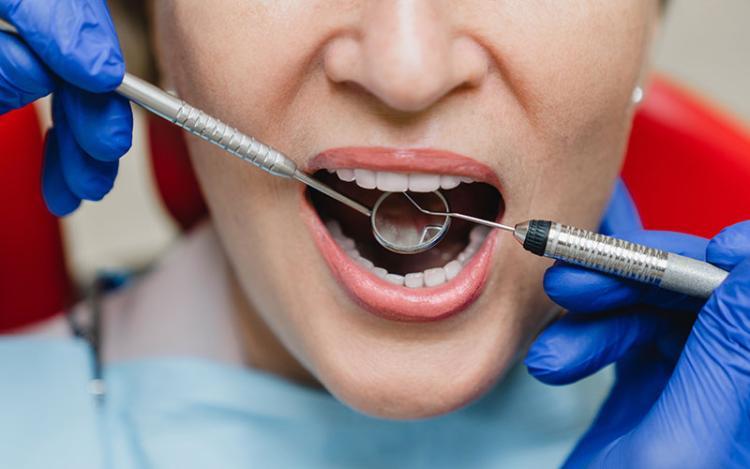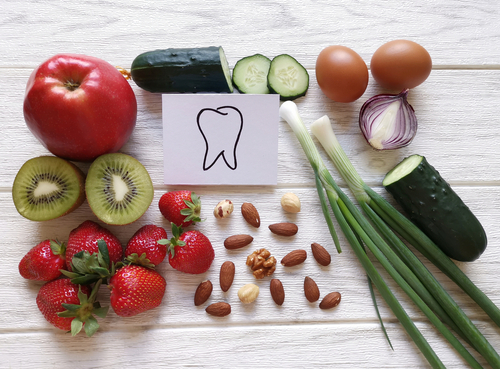The Link Between Mental Health and Oral Hygiene
It’s well known that our mental well-being affects our physical health, but did you know it can significantly impact our oral hygiene too? Recent studies have uncovered intriguing connections between mental health and dental care, revealing that our psychological state can play a crucial role in how we look after our teeth and gums.
Anúncios
Mental Health: Stress Can Damage Your Smile
When life gets hectic, oral health might not be at the top of our priority list. Stress, a common symptom of poor mental health, can lead to neglect of dental hygiene practices such as brushing and flossing. Moreover, stress is also a key player in the development of conditions like bruxism—where you unconsciously grind or clench your teeth, often while asleep. This can lead to tooth wear, increased sensitivity, and even tooth fractures.
Anúncios
Anxiety Leads to Dental Avoidance
For many, dental appointments are a source of anxiety. This fear can deter people from regular dental check-ups, which are essential for maintaining oral health. Avoiding the dentist can lead to the progression of dental diseases that could have been managed or prevented altogether. Moreover, anxiety can manifest as physical symptoms in the mouth, including dry mouth, which increases the risk of tooth decay and gum disease.
Depression’s Effect on Dental Care
Depression can zap one’s motivation and energy, making even simple tasks like brushing teeth feel daunting. People suffering from depression might also experience a reduced concern for personal hygiene which directly impacts their oral health. Neglecting oral care can lead to significant dental problems, including severe gum disease and tooth loss.
Anúncios
The Role of Eating Disorders
Eating disorders, closely linked to mental health issues, can have profound effects on oral health. Conditions such as bulimia and anorexia not only deprive the body of essential nutrients but also expose teeth to stomach acids during episodes of vomiting, leading to enamel erosion. This not only weakens teeth but also makes them more susceptible to cavities and sensitivity.
Breaking the Cycle
Fortunately, there are steps to mitigate the impact of mental health on oral hygiene. Awareness is the first step; recognising that mental health directly influences oral health can motivate individuals to take action. Here are some tips:
- Prioritise mental wellness: Engaging in activities that reduce stress, such as exercise, meditation, or hobbies, can improve overall mental health and, by extension, oral health.
- Set reminders for oral hygiene: Simple tools like alarms or smartphone apps can remind individuals to brush and floss daily, especially helpful for those dealing with depression.
- Seek professional help: Consulting both a mental health professional and a dentist can provide ways to manage the effects of mental health on dental care. Dentists can offer protective measures like mouth guards to prevent damage from bruxism.
Mental Health: Education and Community Support
Enhancing public knowledge about the interconnections between mental health and oral hygiene is key. Educational programs and awareness campaigns can play a significant role in changing public perceptions and behaviours. Community health initiatives can also provide workshops and resources, making information accessible and understandable for all, ensuring that individuals know where and how to seek help.
Integrating Dental and Mental Health Care
A holistic approach to healthcare, integrating dental and mental health services, can provide a more comprehensive care strategy. This integration involves training healthcare providers to recognize symptoms of mental health issues and understand their implications for dental health. Likewise, mental health professionals should be aware of how psychological conditions can affect oral health, advising their patients accordingly and coordinating with dental health professionals.
Technology and Innovation
Advancements in technology also offer new ways to support those at the intersection of mental and oral health issues. Telehealth services can be particularly beneficial, allowing for remote dental consultations and mental health therapies, which can be crucial for those who find it difficult to leave their homes or have severe anxiety about visiting the dentist. Innovative apps that track mood and oral hygiene habits can also help users maintain a routine and identify patterns that may require professional attention.
Role of Diet and Nutrition
It’s also important to consider the role of diet and nutrition in this equation. Mental health can affect eating habits, which in turn impacts oral health. Nutritional counselling and support can be a part of treatment plans for those with psychological health issues, ensuring that the body—and by extension, the teeth and gums—gets the necessary nutrients to stay healthy.
Mental Health: Empowering Patients
Ultimately, empowering individuals with the knowledge and resources to manage both mental and oral health is essential. Encouraging regular dental check-ups, providing support for psychological health issues, and fostering an environment where patients feel comfortable discussing their mental health with their dentists—all contribute to breaking down barriers and improving health outcomes.
The connection between mental health and oral hygiene is a vital aspect of our overall health that should not be overlooked. By addressing psychological health issues, promoting regular dental care, and using tools to help maintain dental hygiene, individuals can improve both their mental and oral health. As awareness grows, the hope is that more people will seek the help they need to break the cycle of psychological health impacting oral hygiene. Remember, a healthy mind contributes to a healthy smile!




